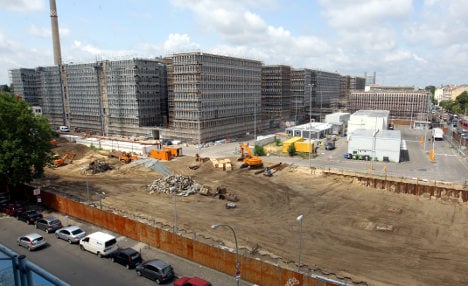There have been multiple problems since ground was broken in 2008 on the new Berlin headquarters of the Bundesnachrichtendienst (BND), which was supposed to cost €720 million. The organization’s roughly 4,000 workers were slated to move from Bavaria to Berlin next year, but its opening has been delayed until 2014.
Among the project’s biggest scandals happened this summer when it was revealed that building plans had mysteriously disappeared. It is also likely to run over cost by more than €80 million.
In the end, total costs for the new building, including relocating employees and technology will near €2 billion.
The troubles with the air conditioning unit are particularly galling because the contractor apparently failed to follow basic regulations, according to the Berliner Morgenpost newspaper. The air conditioner’s ventilation systems are inadequate and it was inexplicably never tested before its installation, the newspaper reported.
Andreas Kübler, spokesman for the Federal Institute for Research on Building, Urban Affairs and Spatial Development (BBSR), said the defects had been “promptly detected,” but the government couldn’t get the responsible firm to adequately fix the problems.
The company’s contract was therefore terminated by the government, Kübler told the Morgenpost. It seems likely that taxpayers will have to pick up the €9.7 million tab for the reinstallation.
The BND declined to comment on the situation.
The Local/mdm



 Please whitelist us to continue reading.
Please whitelist us to continue reading.
Member comments